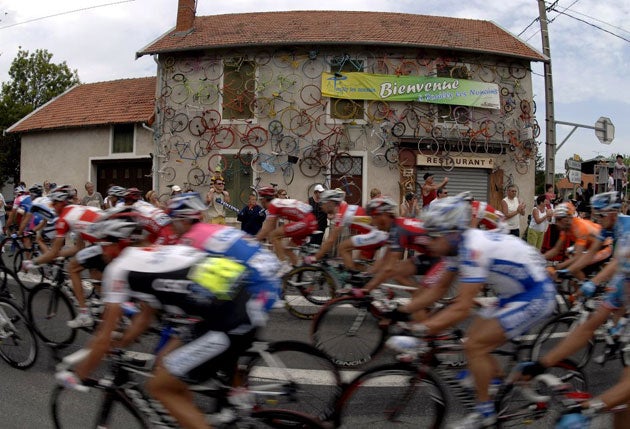Tour de France: Sastre calm in face of near-impossible task

Pedal stroke by pedal stroke, the final, decisive act of this year's dramatic battle for the Tour de France will unfold in all its glory today, when Spaniard Carlos Sastre will attempt the near impossible and try to defend his yellow jersey against Australian Cadel Evans.
Yesterday's stage, won by Frenchman Sylvain Chavanel, served as a prelude of no consequence whatsoever for Saturday's showdown – although the Cofidis pro's victory did allow the host nation to celebrate its third triumph of the 2008 Tour.
Chavanel's victory – outsprinting his inexperienced compatriot Jeremy Roy – was child's play in comparison to Sastre's task in today's time trial between Cerilly and Saint-Amand- Montrond.
A skilled climber, as he showed with Wednesday's devastating win on Alpe D'Huez, Sastre is more than limited against the clock, and today those limitations may become painfully clear on a 53-kilometre course weaving its way through the Forêt de Tronçais, the largest oak forest in western Europe.
On paper Sastre's advantage of 94 seconds will almost certainly prove insufficient against a skilled time trialist like Evans. But – and it is a big but – Sastre has three possible trump cards in his hand, the most important being that after three weeks of racing, the time trial specialists are as tired as the rest of the field.
The second is that the 33-year-old will be the last rider to start, meaning that he will be constantly informed of Evans' intermediate times. Given his only objective is to limit the gaps, Sastre can adapt his efforts accordingly.
Thirdly the Spaniard will start the time trial with the yellow jersey on his shoulders – the Tour, then, is his to lose.
Reserved as ever, on Friday evening Sastre sounded upbeat but by no means overconfident. "I'm calm and relaxed. I'm not sick and I'm not injured. I'll give it 100 per cent. I will try, above all, to ride the time trial of my life. How am I going to get through it? By suffering a lot."
For Evans, the situation is oddly familiar: in last year's Tour, he had to attempt to catch another Spaniard Alberto Contador – also in yellow – in the final time trial. He failed, but Contador's final victory margin of just 23sec was indicative of how close the Australian ran his rival.
The scenario is not new to the race. This is the 12th time in post-war Tours that cycling's showcase event has been decided in the final time trial. The most spectacular reversal of fortunes came in 1989, when Greg LeMond managed to beat Frenchman Laurent Fignon by just eight seconds in a time trial on the Champs Elysées. Evans victory may well be even closer – whatever the result, the final time trial will provide a resounding conclusion to one of the hardest-fought Tours in recent years.
Alasdair Fotheringham writes for www.cyclingweekly.co.uk
Join our commenting forum
Join thought-provoking conversations, follow other Independent readers and see their replies
Comments
Bookmark popover
Removed from bookmarks